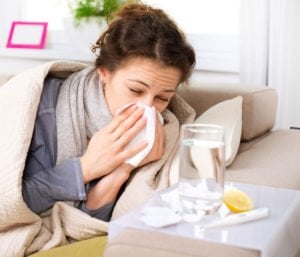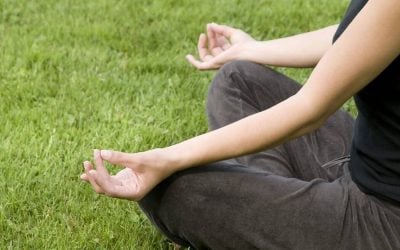Staying Healthy in Winter
Staying Healthy in Winter
Winter is often a welcome change in Western Australia after our long, hot summers. But while we live in a temperate climate, winter in most parts means significant drops in temperatures, greater rainfall and storms. Several health conditions are specifically associated with the climatic conditions during our coldest season. We’ve prepared some tips to help protect you and your family from those illnesses most associated with winter.
Preventing Colds and Influenza
Colds and influenza are particularly common in winter. More than 200 viruses cause the common cold. No treatment will cure a cold, or make it go away more quickly, but if you get plenty of rest and stay hydrated you can expect to recover quicker. Influenza (flu) is caused by a different group of viruses and is a far more severe health condition that can lead to death. Antibiotics are not a suitable treatment for colds or influenza because antibiotics target bacteria, not viruses.
Take steps to protect yourself this season:
- get immunised against influenza
- cover your nose and mouth with a tissue when you cough or sneeze, or use your inner elbow
- throw tissues in the bin after you use them
- wash your hands often with soap and water, or use alcohol-based hand sanitisers, especially after you cough or sneeze
- clean surfaces and objects such as doorknobs, keyboards, phones and toys regularly
- avoid touching your eyes, nose or mouth – germs spread this way
- try to avoid close contact with people who have an influenza-like illness
Eat Nutritious Food
Eating food high in nutritional value will feed your body the vitamins, rich carbohydrates and fats that give you the nourishment you need to recover more quickly. While, it may be tempting to eat more food in winter, it is better to eat a well-balanced diet throughout the year. Try to include foods in your diet that are:
- high in antioxidants, protein and fibre
- high in vitamins B, C, D and E
- low in sugars and fats.
Drink Plenty of Water
It’s also important to hydrate yourself by drinking plenty of water throughout the day. In summer, the hot weather reminds us that we are thirsty. It’s easy to neglect hydration when the weather becomes cooler because we think our body doesn’t need any more water.
Skin problems, like eczema, also become more common in the winter because of the change in temperature, blustery weather and indoor heating can dry out our skin. Keeping your body well hydrated will help to keep your skin healthy, flush out toxins and ward off winter bugs.
Keep yourself Active
It’s common to feel less motivated during the winter months and even getting out of bed can sometimes feel like a chore. Seasonal affective disorder (SAD) is a condition associated with winter, and can be offset by keeping active and maintaining regular contact with others.
We’re lucky living in WA, as our Mediterranean climate means that while winter is our wettest season, we also enjoy many cool, sunny days. Try to get into a routine of getting out and doing some exercise, whether it is walking up the stairs instead of taking the lift or escalator instead swap your normal routine by go for a daily walk.
Stay Warm and Consider Others
Winter can be a tough time for many people in our community. Winter is a good time to check up on how our friends, relatives and neighbours who may be more vulnerable than you to cold weather are feeling
Cold weather is especially dangerous for older people and people with pre-existing or chronic health conditions. People with heart conditions or respiratory (breathing) problems including children wheezing may have worse symptoms during a cold spell and for several days after temperatures return to normal.
- To keep warm and well during periods of cold weather you should:
- keep curtains drawn and doors closed to block draughts
- have regular hot drinks and at least one hot meal a day if possible
- eating regularly helps keep energy levels up during winter
- wear several light layers of warm clothes (rather than one chunky layer) keep as active as possible.
How to Avoid Household Mould
Winter rainfall and darkness can contribute to mould growing in your home. Mould is a fungus that thrives in damp and dark places and flourishes in cold weather. Mould can be found in your home in:
wardrobe spaces if there is not enough ventilation such as:
- areas where there is an external retaining wall close to your house bordering gardens that are reticulated
- wet areas such as bathrooms and laundries
- any part of your home that is not kept dry.
The most practical way to control mould is to have good ventilation, adequate heating and keeping your home and wet surfaces clean and dry.
Planning ahead Before You Travel
Many people living in WA, particularly older people tend to travel north for winter. There are simple measures you can take to help protect the health and wellbeing of yourself and those you care about before you leave. People who are elderly or those with chronic or existing health conditions need extra special care and attention.
You can minimise potential health complications by visiting a doctor and having a general examination to discuss any health issues that may impact on travel plans. Your doctor will prescribe medications you may need and address any health concerns to prepare you for the trip.
Read the original article here.
Note: All content and media on the Bacchus Marsh Dental House website and social media channels are created and published online for informational purposes only. It is not intended to be a substitute for professional medical advice and should not be relied on as health or personal advice.
More Wellness Articles
What’s Your Colour Personality?
Ever felt uplifted seeing a colourful rainbow brighten up an otherwise grey sky or watching a spectacular orange sunset…
Health Tips for Healthy Living
“Healthy living” to most people means both physical and mental health are in balance or functioning well together in a person…
What Causes Dehydration? Here’s What You Need to Know
Your body is about 60% water. Lose even 1.5% of that H2O—the tipping point for mild dehydration—and your , energy levels, and all drop…
Stress Busters
Feeling stressed? Here, you’ll find plenty of tips to help plan for feeling better. First, let’s learn more about stress. It’s a natural…
















